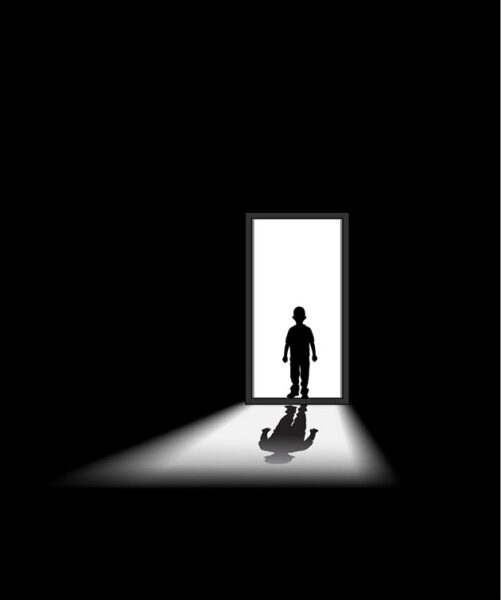
Nyctophobia, also known as fear of the dark, is one of the specific phobias. Read more about this phobia, find out what the symptoms are, and learn how to treat fear of the dark.
It is important to emphasize that this phobia is not always considered pathological – fear of being in the dark, which occurs in small children, may represent a natural phase of their development. However, if nyctophobia significantly complicates a person’s daily functioning or if it occurs in a patient only after reaching adulthood, it can be clearly classified as a specific phobia.
Nyctophobia: Causes
Various problems are listed as possible causes of nyctophobia. For example, genes are taken into consideration – it is evident that when someone in the family has struggled with a similar or different specific phobia, the risk of developing a similar problem is significantly increased.
Childhood also has great significance – it has been shown that for some people, nyctophobia is associated with experiences of various extremely unpleasant situations related to darkness. Such experiences include, for example, various punishments (such as parents locking a child in a dark room) or traumatic events that occurred after dark, such as rape or a car accident.
It is also evident that nyctophobia occurs more frequently in children whose parents themselves exhibit anxious attitudes (in such situations, the child may “inherit” fear from the parent).
Nyctophobia: Symptoms
As you already know, the basic symptom of nyctophobia is fear of the dark. Strong anxiety experiences can also occur when you are in a dark space or room, but sometimes they can also occur when the patient is only thinking about the possibility of being in the dark.
However, anxiety itself is not the only problem that people with nyctophobia face. During this phobia, various somatic illnesses can also occur – the most important of which are problems such as:
- dizziness,
- headache,
- feeling of tightness in the chest,
- shortness of breath,
- increased heart rate,
- pale skin,
- increased body sweating,
- dryness in the mouth.
Nyctophobia: Possible
Consequences There’s no need to convince anyone that the symptoms can be very unpleasant. This type of specific phobia can simply make it difficult for the patient to function in everyday life.
Fear of the dark can lead to sleep disorders – a person who suffers from this phobia typically has significant difficulties falling asleep, which can eventually result in insomnia. In the case of children, attempts to turn off the light in their room usually end in tears, and in extreme cases, even aggression.
Due to life difficulties, a person who experiences fear of the dark may feel worse than others and may even be completely isolated from their loved ones. This kind of state is extremely unfavorable because it encourages the occurrence of various other mental disorders in the patient, including depressive disorder.
Nyctophobia: Treatment
Given how much this phobia can impair a patient’s functioning and what its consequences can be, treating this specific phobia is very important.
Psychotherapeutic interventions play a crucial role here – patients are sometimes recommended psychotherapy, such as cognitive-behavioral therapy and exposure therapy.
Exposure therapy is worth mentioning more, which involves the patient coming into contact with the factor causing the unpleasant illness under the supervision of a therapist.
People who suffer from nyctophobia often expect their doctor to prescribe them some medication that will quickly alleviate the problem. However, the truth is that psychotherapy plays a truly crucial role in the treatment of nyctophobia and pharmacological treatment is only used in justified cases.
